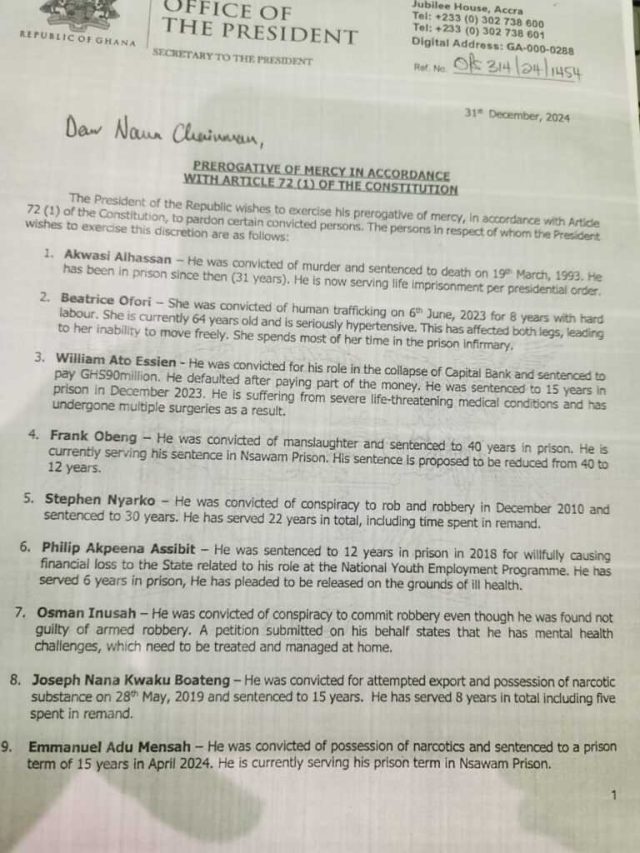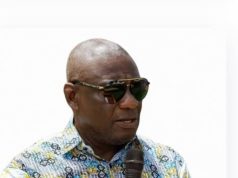President Nana Akufo-Addo’s decision to grant presidential pardons to several individuals, including the former CEO of Capital Bank, Ato Essien, has sparked significant debate in Ghana.
Essien, who was convicted for his role in the financial crimes surrounding the collapse of Capital Bank, had been serving a 15-year prison sentence. His inclusion in the pardon list, revealed through a letter from the Office of the President, has raised eyebrows, particularly given the severity of his crimes.
Alongside Essien, the pardon list includes several other individuals convicted of serious offenses. Among them is Beatrice Ofori, a 64-year-old woman who was convicted of human trafficking and is reportedly suffering from serious health conditions. Additionally, Akwasi Alhassan, who has been imprisoned for over 30 years for murder, is also included in the pardon.
This decision has led to polarized reactions across the country. Critics argue that granting clemency to individuals convicted of serious crimes, including financial fraud, human trafficking, and murder, undermines the integrity of Ghana’s justice system. They question the criteria used for selecting those eligible for pardon and whether such actions erode public trust in the rule of law.
On the other hand, some defend the move, emphasizing the role of compassion and rehabilitation in the justice system. Proponents argue that the president’s decision, particularly in cases involving individuals with serious health issues or those who have served long sentences, reflects the broader humanitarian values of the nation. They suggest that the pardon is an exercise of presidential authority that recognizes the potential for reform and the possibility of second chances for those who have paid their dues.
The inclusion of high-profile figures like Ato Essien in the pardon list complicates the discussion, with some questioning whether such decisions are influenced by political considerations or public pressure. The backlash highlights the delicate balance between justice, mercy, and the broader implications of clemency decisions in Ghana’s legal and political landscape.
As the nation grapples with these issues, the pardons have ignited a broader conversation about the role of presidential clemency and its impact on the public’s confidence in the judicial system.
Send your news stories to newsghana101@gmail.com
Follow News Ghana on Google News















